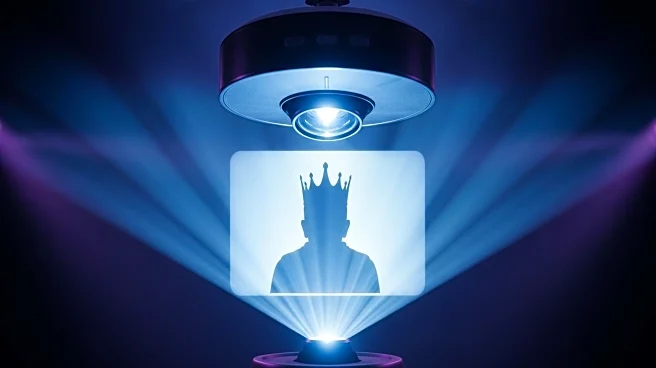What's Happening?
The Venice Film Festival is featuring 'Memory of Princess Mumbi,' a sci-fi romance mockumentary by Swiss-Kenyan filmmaker Damien Hauser. The film, set in a futuristic Africa, explores themes of personal loss and mourning. It follows aspiring director Kuve, played by Abraham Joseph, who documents the aftermath of the Great War of the 2070s. Instead of despair, Kuve discovers a village that has found peace, and meets Mumbi, portrayed by Shandra Apondi, who reveals the beauty in everyday moments. The film is a reflection of Hauser's personal experiences, particularly the loss of his brother, and uses AI-generated segments to enhance its narrative.
Why It's Important?
The film's inclusion in the Venice Film Festival highlights the growing recognition of African cinema on the global stage. It also underscores the innovative use of AI in filmmaking, which could influence future productions. The themes of loss and memory resonate universally, offering audiences a poignant exploration of how individuals cope with tragedy. This could impact how filmmakers approach storytelling, particularly in blending technology with personal narratives. The film's success may encourage more diverse voices and stories in international film festivals.
What's Next?
Following its premiere at Venice, 'Memory of Princess Mumbi' is set to screen at the Toronto Film Festival, potentially increasing its visibility and audience reach. The film's international rights are being handled by Paradise City Sales, which may lead to wider distribution. The reception at these festivals could influence future projects by Hauser and other filmmakers interested in similar themes and technological approaches.
Beyond the Headlines
The film's exploration of AI in storytelling raises questions about the future of filmmaking and the ethical implications of using technology to recreate human experiences. It challenges traditional narrative structures by focusing on insignificant yet beautiful moments, prompting discussions on how stories are told and remembered. This could lead to broader conversations about the role of technology in art and its impact on cultural memory.











